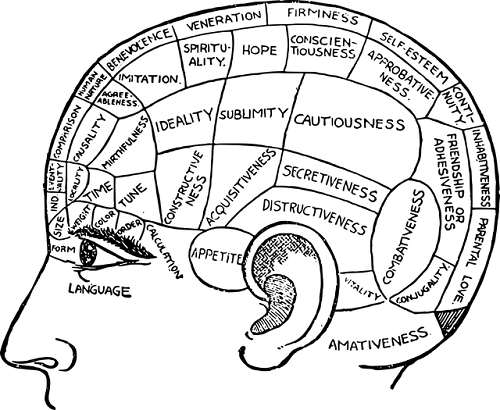Understanding the development of the teenage brain is essential for parents because it offers valuable insights into the cognitive, emotional, and behavioral changes that adolescents experience. This knowledge can help parents better comprehend their teenagers’ decision-making processes, emotions, and behaviors, and can provide them with the tools to support their children during this critical stage of development.
What Parents Need to Know
Teenage Brain Development: During adolescence, the brain undergoes significant changes, particularly in areas responsible for decision-making, impulse control, emotional regulation, and social behavior. The prefrontal cortex, which governs executive functions, continues to develop into early adulthood. Your teenager’s brains control them, so rushing them through their growth phases will be insignificant.
Emotional Intensity: Teenagers often experience intense emotions due to changes in brain development, hormonal fluctuations, and social pressures. They may struggle with regulating their emotions and may exhibit mood swings, irritability, or heightened sensitivity. Give them time and support to process their emotions and find their landing.
Risk-taking Behavior: The prefrontal cortex, which is still developing during the teenage years, can lead adolescents to engage in risk-taking behavior. This is because teenagers often seek novel experiences and social approval, which can lead to experimentation with drugs or alcohol, reckless driving, or risky sexual behavior.
Peer Influence: Teenagers are highly influenced by their peers as they seek acceptance and belonging. Peer relationships play a significant role in shaping their behavior, attitudes, and identity formation. Parents should be aware of their teenagers’ social circles and guide them through peer pressure.
Sensitivity to Rewards and Social Status: During adolescence, the brain is particularly responsive to rewards and social status, leading to significant impacts on decision-making and motivation. Teenagers often prioritize immediate rewards and peer acceptance over considering long-term consequences or parental advice. Thus, parents need to be sensitive to the rewards accorded to their teenagers.
Development of Identity: Adolescence is a period of identity exploration and self-discovery. Teenagers may experiment with different identities, interests, and values as they strive to establish a sense of self. Parents should support their teenagers’ exploration while providing guidance and encouragement.
Sleep Patterns: Changes in circadian rhythms during adolescence can result in altered sleep patterns, with teenagers often experiencing difficulty falling asleep and waking up early. Adequate sleep is crucial for cognitive function, emotional regulation, and overall well-being. Ensure your older child gets enough sleep, deprived of noise and distractions.
Communication Challenges: Teenagers may struggle with communication due to changes in brain development, heightened emotions, and the desire for autonomy. Parents should be patient, empathetic, and proactive in fostering open dialogue and active listening.
Impact of Stress: Stress can have a significant impact on the teenage brain, affecting cognitive function, emotional regulation, and mental health. Parents should help their teenagers develop healthy coping mechanisms and provide support during stressful times.
Positive Parenting Practices: Establishing a supportive, nurturing, and respectful relationship with your teenager is essential for their emotional well-being and development. Maintain open communication, set clear boundaries, and provide guidance while respecting their autonomy and individuality.

Understanding Teenage Brain Development and Your Parenting Style
Understanding the complexities of the teenage brain and the various parenting styles available can empower parents to adapt their approach to better support their teenagers’ growth and development. What is your parenting style, and how does it influence your teenager?
Authoritative Parenting
Authoritative parenting, characterized by being responsive and supportive while also setting clear expectations and boundaries, has a profound impact on the teenage brain. This parenting style fosters a secure attachment between parent and teenager, which in turn promotes healthy emotional regulation and cognitive development in teenagers. Adolescents raised by authoritative parents often exhibit better decision-making skills, higher self-esteem, and improved academic performance compared to those raised under other parenting styles.
Authoritative parenting during the teenage years can provide adolescents with a strong sense of security and independence, enabling them to explore their own identities and passions while still benefiting from guidance and encouragement. This approach has been linked to positive outcomes in various aspects of adolescent development, including academic success, self-esteem, and social skills.
Authoritarian Parenting
The impact of authoritarian parenting on the teenage brain is significant. Authoritarian parents are demanding and controlling, prioritizing obedience and discipline. While this parenting style may lead to compliance, it can also result in teenagers experiencing feelings of resentment, rebellion, and low self-esteem.
Authoritarian parenting, characterized by strict rules and low levels of warmth, has been shown to potentially hinder healthy brain development in teenagers. This parenting style restricts teenagers’ autonomy and may stifle their ability to develop problem-solving skills and decision-making capabilities. As a result, teenagers raised in authoritarian households may become more susceptible to peer pressure and exhibit difficulties in emotional regulation, potentially impacting their overall well-being and development.
Permissive Parenting
Permissive parenting involves being lenient and indulgent, often avoiding confrontation and setting minimal rules or expectations. While this parenting style can create a warm and accepting environment, it may lead to teenagers lacking self-discipline and struggling with boundaries. This lack of structure can affect their ability to develop important life skills and navigate relationships effectively.
Permissive parenting may result in teenagers lacking the structure and guidance needed for healthy brain development. Without clear boundaries or expectations, teenagers may struggle with impulse control, decision-making, and accountability, potentially leading to risky behavior or academic underachievement. They are left to make decisions on their own.
Uninvolved Parenting
Uninvolved parents are often disengaged and neglectful, providing minimal emotional support, supervision, or guidance to their teenagers. This lack of parental involvement and support can have profound negative effects on teenagers’ emotional well-being, self-esteem, and academic success. Adolescents raised by uninvolved parents may struggle with feelings of abandonment, low self-worth, and difficulties in school and social relationships. This parenting style can significantly impact the developing teenage brain and contribute to long-term challenges in various aspects of their lives.
Uninvolved parenting, also known as neglectful parenting, is characterized by a lack of responsiveness to a child’s emotional needs and a lack of communication. This style of parenting deprives teenagers of the necessary support and nurturing required for healthy brain development. Adolescents may struggle with feelings of abandonment, low self-worth, and challenges in forming secure attachments with others when they do not have positive parental involvement. This can have long-term consequences on their emotional well-being and social interactions.

In Summary
Authoritative parenting, characterized by warmth, responsiveness, and clear expectations, tends to promote the healthiest outcomes for teenagers’ brain development. It provides teenagers with the support, guidance, and autonomy necessary for navigating the challenges of adolescence while fostering positive emotional, cognitive, and social development.
Understanding the unique challenges and opportunities presented by teenage brain development, and how different parenting styles influence teenage brains, can empower parents to adopt approaches that promote their teenagers’ well-being and success. Parents can be in a better position to support their teenagers’ growth, navigate the challenges, and foster a strong and healthy parent-child relationship.

